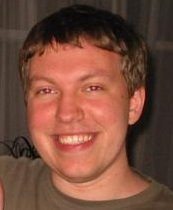I'm of two minds about competitiveness. I understand I live in a country enamored of it. I grew up in an atmosphere of rivalry in everything I did, from academics to sports, to learning to poop in the pot. My mother can't be considered to be conscious of her constant exortations to us to look to each other for someone to beat. She thought she was inspiring us, teaching us to use each other as role models, but really she taught us to hate each other's achievements and to feel ashamed of our own. I was "the smart one" -- but the kicker was, my mom would remonstrate me about my achievements, because they made my sister and brother feel stupid and inadequate. My evil smartness was justification in her mind, for any of the cruel tricks my sister pulled, or the physical pain my brother caused. Her sympathies were squarely with them. She was replaying, with us kids, the same dynamic she had suffered under as the "stupid one" in her own childhood, but how could I know that? All I knew was I couldn't do anything right. By the time I graduated college I pretty much realized the least stressful (immoral, unfair, cruel) thing for me to do was to move really far away and do nothing at all, as much as possible.
I saw my dad sicken and die under the pressure to achieve. Lots of people my age saw their parents agonize their way through life, never feeling they had done enough. There was a term for it, the rat race. Workaholism. Now and then some pop psych guru would encourage folks to slow down, smell the roses, meditate, give up some material goods and some late night work for the sake of that quality time. But mostly, you were rewarded for killing yourself to win. People cherished schools that encouraged competition among students. TV shows that taught us that good battled constantly against evil and won through good character and values. History books that painted the country as good, right and always the winner.
One of the most popular parenting classes I taught involved helping parents to unravel sibling rivalry problems. But you could tell by the way parents approached the information, that they really didn't understand that it was they, not their "bad child" who was causing the rivalry in the first place. All they wanted was to find out how to "fix" the kid, usually the oldest. They had a hard time looking at how they were encouraging internecine warfare every waking moment of their children's lives.
You can still see vestiges of my competitiveness here, and in say, an occasional game of Scrabble. I try to blunt it, joke it off, but it's there, like an old addiction, a scar on my personality. Ugh. I hate to look at that side of myself, but that doesn't make it go away.
You must wonder where I'm going with this. Today I read a story about a coach for a Texas girls' basketball team, who refused to apologize for letting his team win their game 100-0. My first reaction was, go coach! Girls should be allowed to play their hardest, too!
The team belongs to a christian girls' school. In my mind, I could hear the stuffy old school board telling each other that the girls would stop menstruating if they kept winning, that it might even lead to dancing. And they were quoted: It is shameful and an embarrassment that this happened. This clearly does not reflect a Christlike and honorable approach to competition, from a statement signed by the school's headmaster and their board chair. Holy crap!
The coach sounded so valiant: "In response to the statement posted on The Covenant School Web site, I do not agree with the apology or the notion that the Covenant School girls basketball team should feel embarrassed or ashamed. We played the game as it was meant to be played. My values and my beliefs would not allow me to run up the score on any opponent, and it will not allow me to apologize for a wide-margin victory when my girls played with honor and integrity." And the parents clearly didn't agree with the school, cheering wildly from half time, when the score was 59-0, to the last 3 pointer.
Yeah, I was all for it. Then I read the rest of the story. The team they won against, the Dallas Acadamy, only has 8 girls on the whole team, 20 in the entire school; and specializes in teaching girls with learning disabilities. The kind of kids who couldn't even get admitted to Covenant, much less get onto their basketball team.
And now I'm ashamed.
It appears that the parents and schoolmates of the Dallas Academy are cheering on their team for their persistence and courage in the face of impossible odds. Call it the Thermopylae frame.
The Hollow Woman
6 years ago


